|
|
Fall 2018: Upcoming Seminars
|
|
Image Rejection Theory and Mitigation Approaches
Speaker:
Dr. John Khoury
Date:
Friday, Nov. 2nd, 2pm, CEPSR 414
|
|
|
|
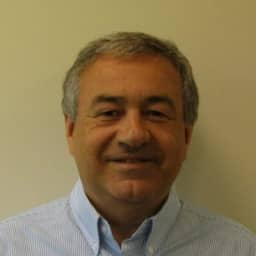
Dr. Mihai Banu
Blue Danube Systems
Date:
Friday, Sep. 21st, 2:00pm-3:00pm,
Location:
CEPSR 750
|
Coherent Hybrid Massive MIMO for Advanced 4G/5G Radio Access Networks
Abstract:
Recently, experts in academia and industry have been strongly advocating the concept of Massive MIMO for application in 4G and 5G systems. While the push for larger base station antenna aperture is likely the right idea for cellular and other applications, there are important subtleties, which make the practical application of Massive MIMO far from straightforward. The original version of this concept requires digitization of every antenna element and evades the need of RF coherency by using pilot signals and extensive digital signal processing. This brute force approach results in expensive and power hungry systems with performance, which is highly sensitive to practical impairments. In this presentation we show that by introducing economical RF coherency, i.e., by designing the Massive MIMO
system on a low-cost phase-array platform, the radio hardware can be simplified significantly without fundamental loss of performance and with improved resilience to practical impairments. We will describe the Blue Danube hybrid solution to Coherent Massive MIMO and will present field results from Blue Danube products operating in mid-band spectrum.
Biography:
Dr. Banu has over 30 year experience in circuits and systems R&D, with emphasis on analog, radio frequency and mixed-signal integrated circuits. His experience encompasses many areas from invention and demonstration of new circuits and system concepts, to design methodologies and product development. Dr. Banu is Founder of Blue Danube Systems, which received Series A venture capital funding and started operations in 2013. He developed the Blue Danube Systems technology concepts at MHI Consulting, a small consulting firm founded and owned by Dr. Banu since 2006. Prior to that, he was R&D director at Agere Systems, working on analog circuits, RF systems for wireless LANs and wireless circuits research. From 1995 to 2000, Dr. Banu was Head of the Communications Circuits Research department at Lucent Technologies, where he was responsible for advanced work in circuit
design and Si technology process-device enhancements including SiGe BiCMOS. From 1980 to 1995, he was a Member of Technical Staff at AT&T Bell Laboratories in the Communications Sciences Division, the Physical Sciences Division and the VLSI Research Department. Dr. Banu is author of more than 30 technical papers, several book chapters and many U.S. and international patents. As a recognized electrical engineering expert, he was invited to contribute in many panels and workshops at major international conferences, as well as teach short courses. He received his bachelor's, master's, and Ph.D. degrees in electrical engineering from Columbia University and he is an IEEE Fellow.
|
|
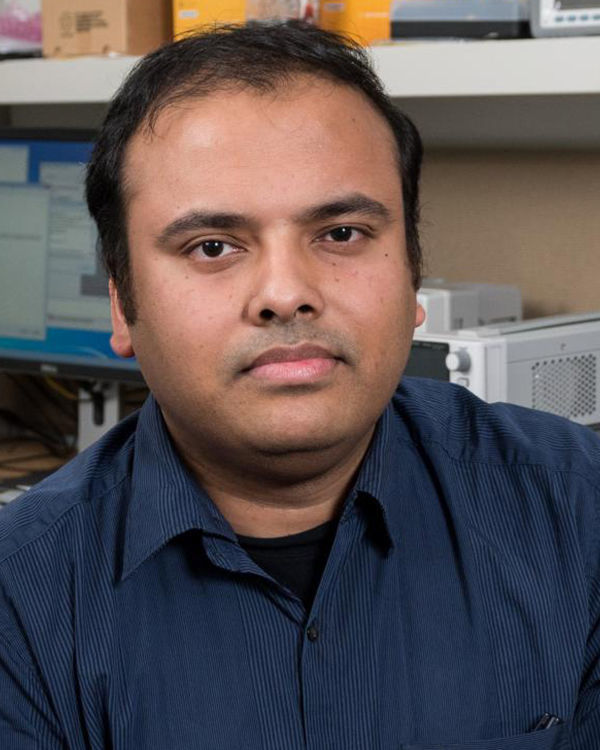
Prof. Arijit Raychowdhury
GeorgiaTech University
Date:
Friday, Oct. 5th, 2:00pm-3:00pm
Location:
CEPSR 414
|
Computing with Dynamical Systems
Abstract:
Collective dynamical systems offer unique opportunities for computing by harnessing the complex interactions of simple elements such as oscillators or spike generators. This is possible, when such dynamics can be programmed, controlled, and observed. In this talk, I will present some of our work where we are exploring the time-evolution of both deterministic and stochastic dynamical systems in both CMOS and post-CMOS computing substrates. I will show applications of such systems in solving inverse problems, distributed optimizations (convex and combinatorial) and machine learning. In particular, I will discuss our recent work that connects dynamics and algebraic graph theory. Finally I will talk about implementation of such dynamics in mixed-signal CMOS, including a recent demonstration of reinforcement learning for energy-constrained edge devices. I will conclude with a brief discussion of the opportunities, potentials and challenges in realizing such computational systems.
Biography:
Arijit Raychowdhury is an Associate Professor in the School of Electrical and Computer Engineering at the Georgia Institute of Technology where he joined in January, 2013. He currently holds the ON Semiconductor Jr Professorship and is the Associate Director of the Center for Co-Design of Chips, Packaging and Systems. He received his Ph.D. degree in Electrical and Computer Engineering from Purdue University in 2007. Prior to joining academia, he was a staff scientist at Intel's Circuit Research Labs for five years where he worked on mixed signal and digital designs for energy-efficiency sensors and compute nodes. Before that, he spent one and a half years at Texas Instruments where he worked on developing the world's first adaptive echo cancellation unit for DSL modems, which received the EDN industrial design award. Dr. Raychowdhury holds more than 25 U.S. and international patents and has published over 150 articles in journals and refereed conferences. He and his students have won multiple best paper awards, fellowships and best thesis awards.
|
|
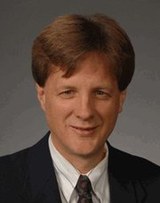
Dr. Tom Kazior
Raytheon
Date:
Friday, Oct. 19th 2:00pm-3:00pm
Location:
CEPSR 750
|
Next Generation GaN-based Materials, Devices, and Integration for Microwave and Millimeter Wave Applications
Abstract:
Advances in silicon technology continue to revolutionize microelectronics. However, Si cannot do everything, particularly for high performance, high frequency RF and mixed signal applications. As a result circuits based on other materials systems, such as III-N semiconductors, are required. In fact, GaN RF technology is beginning to become the technology of choice for next generation microwave and millimeter applications. In addition, recent research in nitride
material and device engineering show promise of significantly increased RF performance (power density, gain, efficiency, operating frequency) over conventional AlGaN/GaN HEMTs. Despite these advances nitride device technologies do not enjoy the integration density, cost benefit and manufacturing infrastructure of Si. So how can we get the 'best of both worlds'? What is the best way to integrate III-Ns with Si? In this presentation, we review the status of and recent advances in III-N RF device technology as well as different heterogeneous integration approaches and summarize our results on the successful wafer-scale, 3D heterogeneous integration (3DHI) of GaN HEMTs and Si CMOS.
Biography:
Thomas Kazior received a Ph.D. from the Department of Material Science and Engineering at the Massachusetts Institute of Technology. Dr. Kazior is presently a Senior Principal Engineering Fellow at Raytheon Integrated Defense Systems. He is a subject matter expert (SME) in advanced microelectronics (materials, devices and packaging/integration), specializing in III-V compound semiconductor technology (including III-Ns) for microwave and millimeter
wave applications, and 3D / heterogeneous integration of III-Vs with Si. He has served as principal investigator (PI) for the DARPA COSMOS and DAHI Programs and is currently PI for the DARPA DREAM program. Dr. Kazior has authored, coauthored or presented over 100 papers, review articles, conference presentations, invited talks, and a book chapter and holds numerous patents in microelectronics technology. He is a 2001 recipient of Raytheon's Excellence in Technology Award, and the 2012 recipient of Raytheon's Innovation Excellence Award. Dr. Kazior has served as chair of the ITRS (International Technology Roadmap for Semiconductors) subcommittee for III-V device technology and currently sits on the Science Advisory Board (SAB) for the Semiconductor Research Corporation's (SRC) Joint University Microelectronics (JUMP) Programs. Dr. Kazior is a Fellow of the IEEE.
|
|
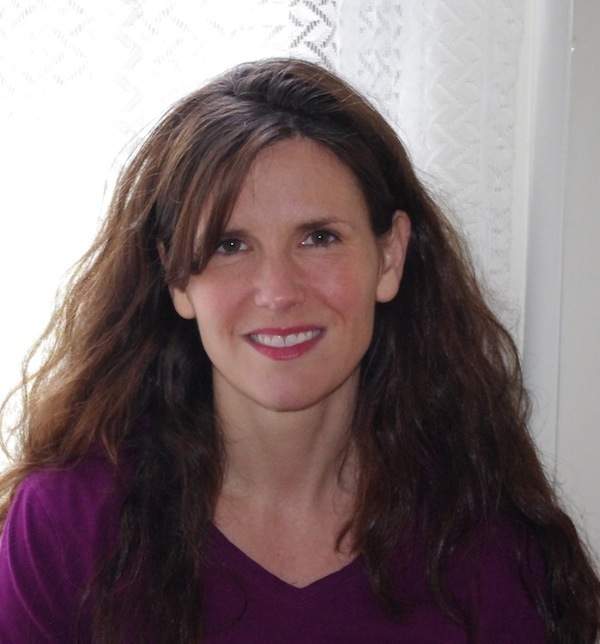
Prof. Alyssa Apsel
Cornell University
Date:
Friday, Oct. 26th, 2:00pm-3:00pm
Location:
CEPSR 414
|
Flexible Radios and Flexible Networks
Abstract:
Over the past decades the world has become increasingly connected, with communications driving bothmarkets and social movements. Low power electronics, efficient communications, and better battery technology have all contributed to this revolution, but the cost and power required for these systems must be pushed further to make cheap, ubiquitous, seamless communication accessible to a wider community. In this talk I will discuss two engineering approaches to this problem. I will look at various approaches to drive the power down in radio networks that span across circuits and systems. I will also look at creative biologically inspired approaches to enabling very low power networks and IoT. Finally, I will discuss how by adding flexibility and building reconfigurable hardware, we can likewise build lower power and less costly consumer systems that can adapt across protocols and networks and work under changing device technologies.
Biography:
Alyssa Apsel received the B.S. from Swarthmore College in 1995 and the Ph.D. from Johns Hopkins University, Baltimore, MD, in 2002. She joined Cornell University in 2002, where she is currently Director of Electrical and Computer Engineering. She was a Visiting Professor at Imperial College, London from 2016-2018. The focus of her research is on power-aware mixed signal circuits and design for highly scaled CMOS and modern electronic systems. Her current research is on the leading edge of ultra-low power and flexible RF interfaces for IoT. She has authored or coauthored over 100 refereed publications including one book in related fields of RF mixed signal circuit design, ultra-low power radio, interconnect design and planning, photonic integration, and process invariant circuit design techniques resulting in ten patents. She received best paper awards at ASYNC 2006 and IEEE SiRF 2012, had a MICRO 'Top Picks' paper in 2006, received a college teaching award in 2007, received the National Science Foundation CAREER Award in 2004, and was selected by Technology Review Magazine as one of the Top Young Innovators in 2004. She is a Distinguished Lecturer of IEEE CAS for 2018-2019, and has also served on the Board of Governors of IEEE CAS (2014-2016) and as an Associate Editor of various journals including IEEE Transactions on Circuits and Systems I and II, and Transactions on VLSI.
She has also served as the chair of the Analog and Signal Processing Technical committee of ISCAS 2011, is on the Senior Editorial Board of JETCAS, as Deputy Editor in Chief of Circuits and Systems Magazine, and as the co-founder and Chair of ISCAS Late Breaking News. In 2016, Dr. Apsel co-founded AlphaWave IP Corporation, a multi-national Silicon IP provider focused on multi-standard analog Silicon IP solutions for the world of IOT. As Chief Technology Officer of AlphaWave, Dr. Apsel led the company's global research capability with offices in Silicon Valley, Toronto, and London.
|
|
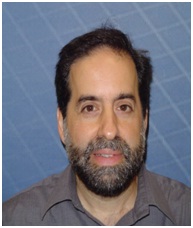
Dr. John Khoury
Silicon Laboratories, Inc.
Date:
Friday, Nov. 2nd, 2:00pm-3:00pm
Location:
CEPSR 414
|
Image Rejection Theory and Mitigation Approaches
Abstract:
This seminar will review the problem of image rejection in wireless receivers and discuss the numerous approaches to mitigate its effect. Classical super-heterodyne receivers achieve image rejection with high-selectivity front-end RF tracking filters and careful choice of the IF frequency. In contrast, modern Integrated Circuit CMOS receivers typically use a low-IF complex architecture and either have a one-time calibration with a test signal or an autonomous DSP-based calibration that continuously adapts in the background to reject the image. Several examples are presented of the various approaches. The talk
will emphasize an image cancellation technique that downconverts both the desired and image channel to baseband and uses a LMS-based signal separation algorithm. Simulation and experimental results will be presented.
Biography:
John Khoury is an Engineering Fellow at Silicon Laboratories and currently works in the area of mixed-signal CMOS IC design for short range wireless IoT systems. He has held various engineering and management positions at Silicon Laboratories, Bell Laboratories and Multilink Technology. He was also
an Associate Professor of Electrical Engineering at Columbia University from 1995 to 1998. John's research and product development work has included TV tuners, 10 Gbps transceivers, Class D amplifiers, sigma-delta modulators, and numerous wireless and wireline systems. He serves on the CICC technical program committee and previously served on the ISSCC and VLSI Symposium technical program committees.
|
|
Spring 2018 Seminars
|
|
Title:
Coherent Hybrid Massive MIMO for Advanced 4G/5G Radio Access Network
Speaker:
Dr. Mihai Banu
Date:
Friday, Sep. 21st, 2pm, CEPSR 750
Title:
Computing with Dynamical Systems
Speaker:
Prof. Arijit Raychowdhury
Date:
Friday, Oct. 5th, 2pm, CEPSR 414
Title:
Next Generation GaN-based Materials, Devices, and Integration for Microwave and Millimeter Wave Applications
Speaker:
Dr. Tom Kazior
Date:
Friday, Oct. 19th , 2pm, CESPR 750
Title:
Flexible Radios and Flexible Networks
Speaker:
Prof. Alyssa Apsel
Date:
Friday, Oct. 26th, 2pm, CEPSR 414
Title:
Image Rejection Theory and Mitigation Approaches
Speaker:
Dr. John Khoury
Date:
Friday, Nov. 2nd, 2pm, CEPSR 414
|
|
|
|
|

